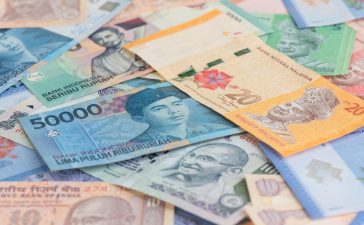The dollar index and dollar index futures dropped 0.1% each in Asian trade, extending sharp overnight declines
Most Asian currencies rose marginally on Thursday as the dollar and Treasury yields pulled further away from recent highs, although persistent signs of deflation in China kept sentiment subdued.
Markets were now waiting for more clues on U.S. interest rates after largely dialling back expectations for early rate cuts by the Federal Reserve, following a series of robust economic data and hawkish comments from Fed officials.
This trend largely curbed a rally in the dollar, with the greenback retreating further from a three-month high touched earlier this week. U.S. Treasury yields also pulled back from recent highs.
The dollar index and dollar index futures dropped 0.1% each in Asian trade, extending sharp overnight declines. U.S. inflation data for January, due next week, is now in focus for more clues on the path of interest rates.
Most Asian currencies edged up. The Australian dollar was among the better performers for the day, advancing 0.1% and extending gains from earlier this week after the Reserve Bank of Australia cautioned that it could still raise interest rates in the face of sticky inflation.
The Indian rupee strengthened 0.1%, moving further away from near record-low levels as traders awaited a Reserve Bank of India meeting later in the day. The RBI is widely expected to keep rates on hold, while its forecasts on inflation and economic growth will be in focus.
The Japanese yen dropped 0.1% and remained in sight of a two-month low, amid persistent uncertainty over when the Bank of Japan will begin scaling back its ultra-loose policy.
The South Korean won and Singapore dollar moved little.
The Thai baht slipped 0.5% after a Bank of Thailand official said that the bank stood ready to cut interest rates if private consumption slowed further in the country.
Any major gains in Asian currencies were largely held back by concerns over higher-for-longer U.S. interest rates, as a number of Fed officials cautioned this week that the bank was not considering any monetary loosening in the near-term.
Signs of persistent economic weakness in China also dented sentiment towards the region, as Asia’s biggest economy continued to grapple with disinflation.





